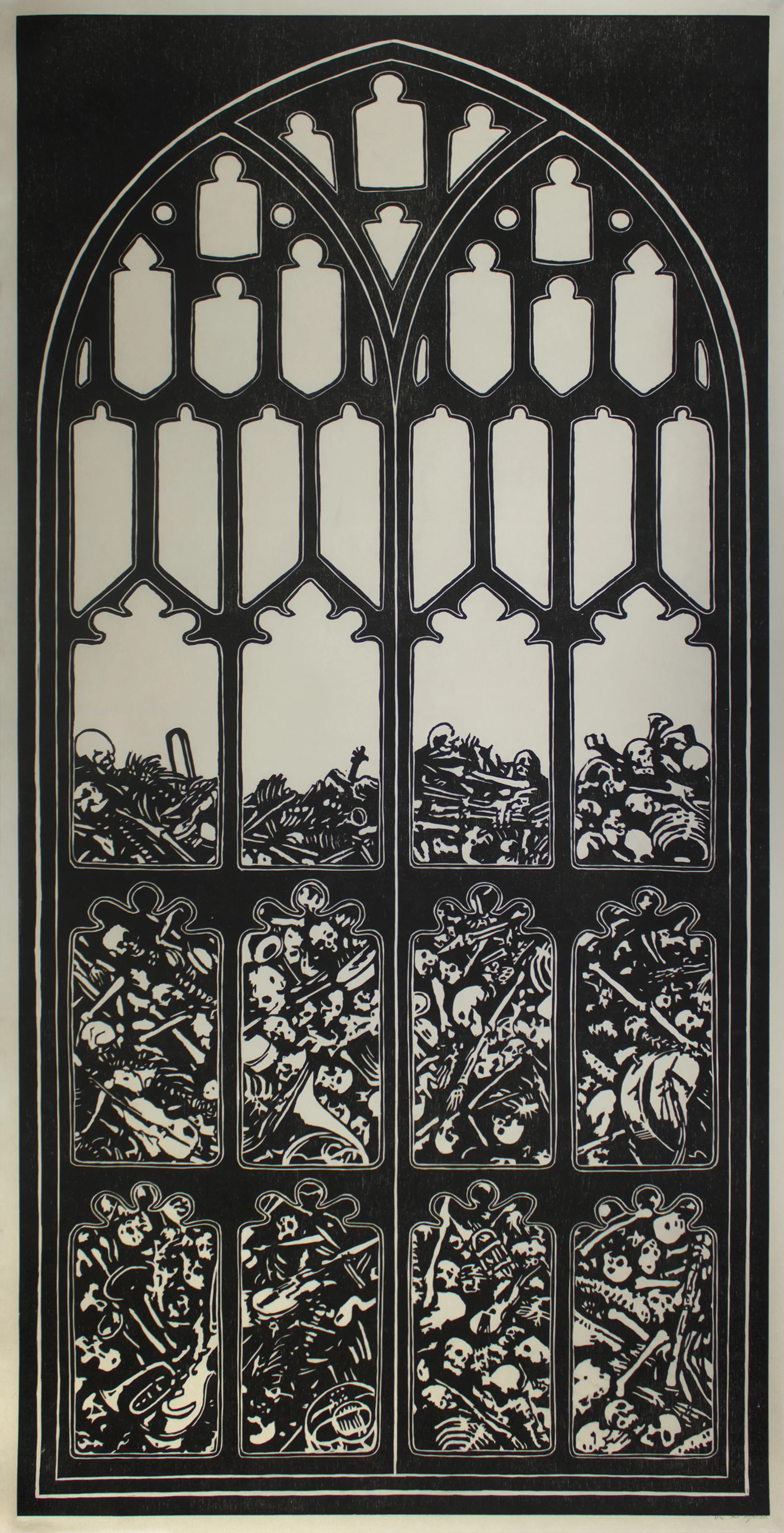Woodblock Prints by Aaron Hughes carved with support from Paul Kjelland, Kevin Soens, Christina Theobald, and Moriah Iverson. Printed and backed by Aaron Hughes and Master Printer Paul Mullowney assisted by printers Harry Schneider and Kanani Miyamoto with help from graduate students Schuyler DeMarinis, Lauren Goding, and Russell Wood. Prints produced in collaboration with Mullowney Printing and Watershed Center for Fine Art Publishing and Research at Pacific Northwest College of Art.
Download a PDF of the Liner Notes Booklet here.
Aaron Hughes
Requiem aeternam, Anthem for Doomed Youth
2019
Woodblock print on Sekishu Kozo paper, backed twice.
Prints by Aaron Hughes with support from Master Printer Paul Mullowney and printers Paul Kjelland, Kanani Miyamoto, Harry Schneider, Schuyler DeMarinis, Lauren Goding, and Russell Wood.
SIDE A
I. Requiem aeternam
Cello Prelude
Anyone There
I have come to talk about Syria and all that has occurred
Syria is torn as whether to cry for us or the land
I swear I don’t know what to say and what to choose
The screams of the martyr’s mother or the sounds of destruction
Aleppo was paradise yet now it’s all destroyed
Children died of hunger and the reason is the siege
In brief, this is what happened
Syria nestled all religions
Now it fights in the name of Islam
Good heavens, hearts turned into stone
Syria is calling, injustice has propagated
Injustice prevails and kills people*
I already feel like I’ve lost my place
My hometown has gone without a trace
Looking for something I can’t replace
Hoping I can find a better place
I can’t see my family at home
But I can still see them on my phone
It doesn’t really stop me from feeling alone
I’m carrying this sadness in my bones
The memories I have will never go away
When I go to sleep they start to replay
I’m never going back I’m here to stay
Gotta keep going to find another way
I’m starting to feel like people don’t care
I’ve got a story to tell, it’s my turn to share
I offer this dream, this hope my prayer
I’m shouting this out, is there anyone there
By The Syrian Kings (Ahmed and Hussein, with contributions from Jowan, Ali and Mohammad; supported by GemArts music leaders Izzy Finch and Pawel Jedrzejewski)
* First stanza translated from Arabic
Anthem for Doomed Youth
What passing-bells for these who die as cattle?
— Only the monstrous anger of the guns.
Only the stuttering rifles’ rapid rattle
Can patter out their hasty orisons.
No mockeries now for them; no prayers nor bells;
Nor any voice of mourning save the choirs,—
The shrill, demented choirs of wailing shells;
And bugles calling for them from sad shires.
What candles may be held to speed them all?
Not in the hands of boys, but in their eyes
Shall shine the holy glimmers of goodbyes.
The pallor of girls’ brows shall be their pall;
Their flowers the tenderness of patient minds,
And each slow dusk a drawing-down of blinds.
By Wilfred Owen

















